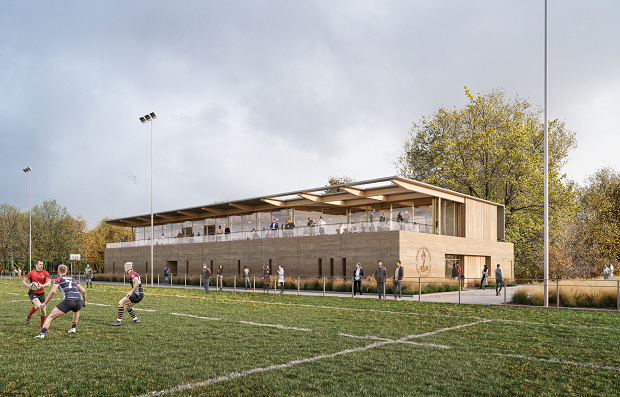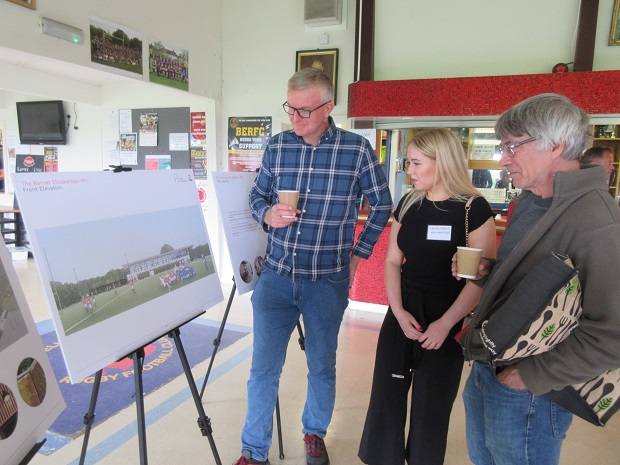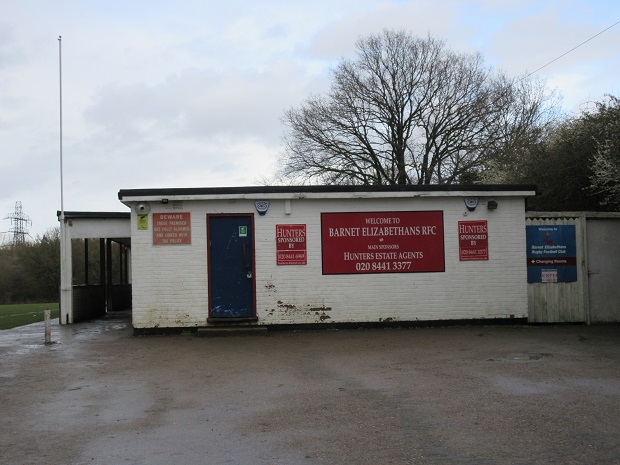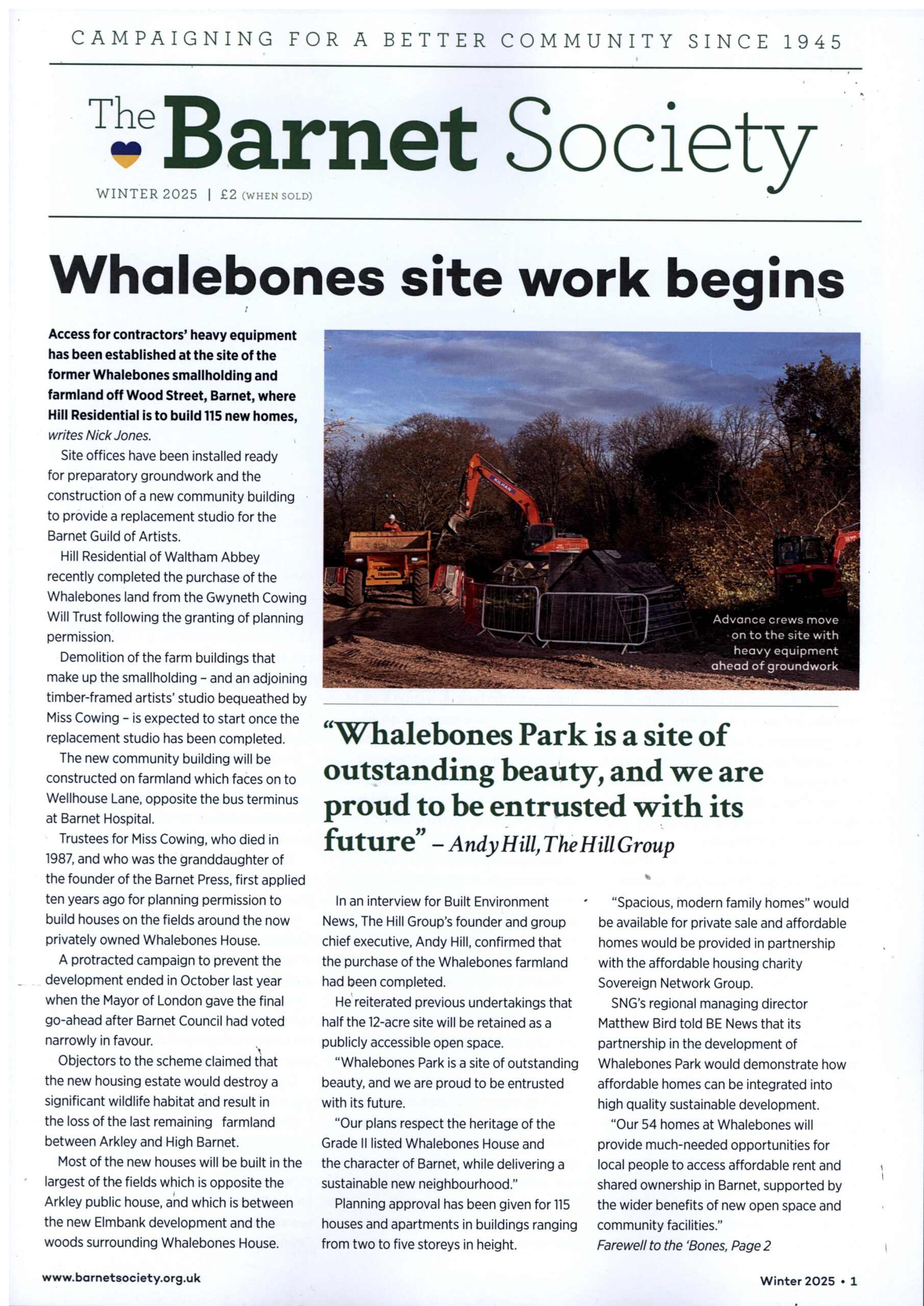Without planning approval for new clubhouse, uncertain future for Barnet Elizabethans RFC

Barnet Elizabethans Rugby Football Club hopes finally to obtain planning permission in mid-September for a two-storey new clubhouse to replace its antiquated and dilapidated changing rooms at the Byng Road playing fields.
Two Barnet Council committees have voted narrowly to indicate their support for the scheme against the advice of council planners and despite over 100 letters of objection.
In recommending refusal, planning officers said they considered the new clubhouse, car parking, fencing, and floodlighting would cause substantial harm to the sense of openness and visual amenities of the Green Belt.
But this advice was rejected by an area planning committee and also by the strategic planning committee which decided by five votes to four that it was “minded to approve” the plan subject to conditions to be drawn up by the council.
Supporters of the club’s long-standing attempt to modernise its changing facilities say they fear that if the plan fails to get final approval at a meeting of the strategic planning committee on 12 September there is a danger that charitable funds to finance the new clubhouse might be diverted to another rugby club development in Hertfordshire.
But in their recommendations to refuse, planning officers said the new clubhouse and improvements would introduce an urbanised form of development in “a semi-rural location”.
There would be a “harmful impact” on nine oaks protected by tree preservation orders and external lighting to the pitches, including a 15-metre-high floodlight, would result in “extensive light spill” to the detriment of the continued presence of a bat population in nearby trees and woodland.
Among the objections was the fear that the redevelopment of the pitches and car parking would reduce the area of open space for the community and jeopardise the annual Barnet Medieval Festival.
But in its response, the club insisted the playing fields could continue to be used for the medieval festival and this would be facilitated through an agreed management plan.

Club director Alex Bell (far left) – seen here last year at a presentation of the club’s plans – said Barnet Elizabethans’ future depended on rebuilding the existing 60-year-old changing rooms so that the club could meet the playing and safety standards required by the Rugby Football Union.
“We have access to a £7million charitable bequest to help pay for a new clubhouse, improve our pitches, and provide safe and secure changing facilities for women, children, and disabled players.
“This bequest is for the specific purpose of providing support and facilities for playing rugby and if we, as an amateur club, are unable to get the go ahead for our new clubhouse, who knows what our future will be.
“We saw how Barnet Football Club had to leave Underhill a decade ago because of a planning dispute. Over the years the town has also lost Barnet Cricket Club and Barnet Hockey Club. Will Barnet Elizabethans be the next?
“This is a real danger which is why we are determined to do all we can try to keep rugby in Barnet bearing in mind we have over 800 members and offer training from toddlers to teenagers and have two adult teams.”
Councillor David Longstaff, one of four local councillors who spoke in favour of the new clubhouse, agreed with Mr Bell that Barnet needed to retain and encourage voluntary sporting organisations like Barnet Elizabethans.
“Here we have a rugby club that has the resources to rebuild its clubhouse, improve its facilities, widen its playing membership, and secure its future for the long term.
“As a community we cannot afford to ignore the risk of not supporting a club like this.”
He said that all around High Barnet were abandoned and boarded up sports pavilions and clubhouses – for example, in King George’s playing fields and Tudor Park – and he did not want to see the rugby club’s premises in Byng Road suffer the same fate.

Barnet Elizabethans’ existing clubhouse was built in 1957. When teams from Hertfordshire and North London visit Byng Road they have to put up with facilities that fail to meet the RFU’s hygiene and safety standards.
Currently there are no secure changing rooms either for women or children and the lack of adequate facilities is all the more pressing given that at weekends, and often on weekday evenings, the playing fields are a hive of activity hosting matches for 75 adult players, a newly formed women’s team, and large numbers of under 18s.
The new clubhouse would have eight self-contained changing rooms on the ground floor, one for each team from the club’s four pitches. Each changing room would have its own internal shower block.
1 thought on “Without planning approval for new clubhouse, uncertain future for Barnet Elizabethans RFC”
Comments are closed.


Good article. A club that i fully support and the building of this new club house is needed urgently. However, it is great pity that if Alex Bell had taken mine and other people’s advice pre covid this article would not need to have been written and the club would have its new building. The lesson being, speak to your local community and get them on side first.